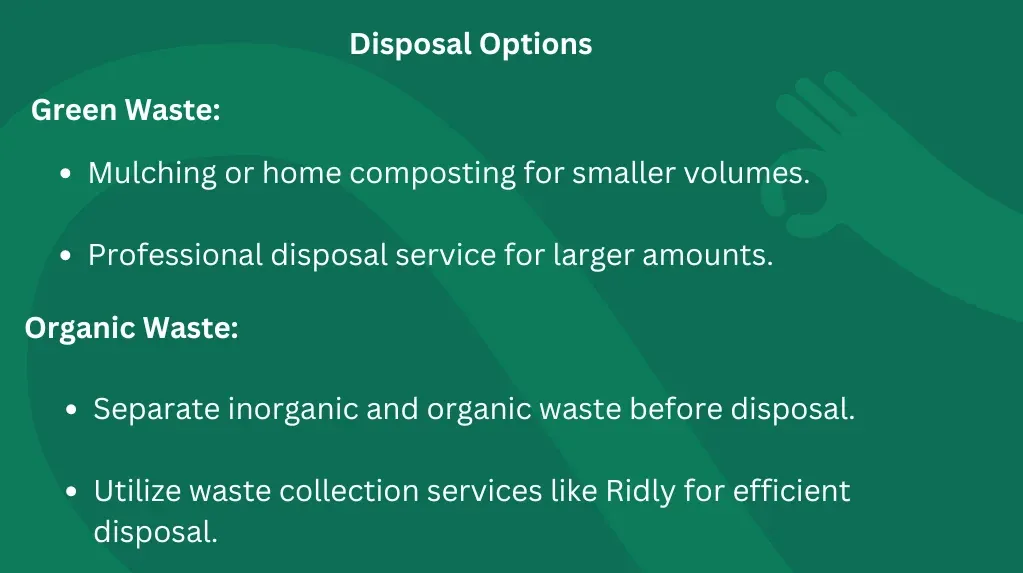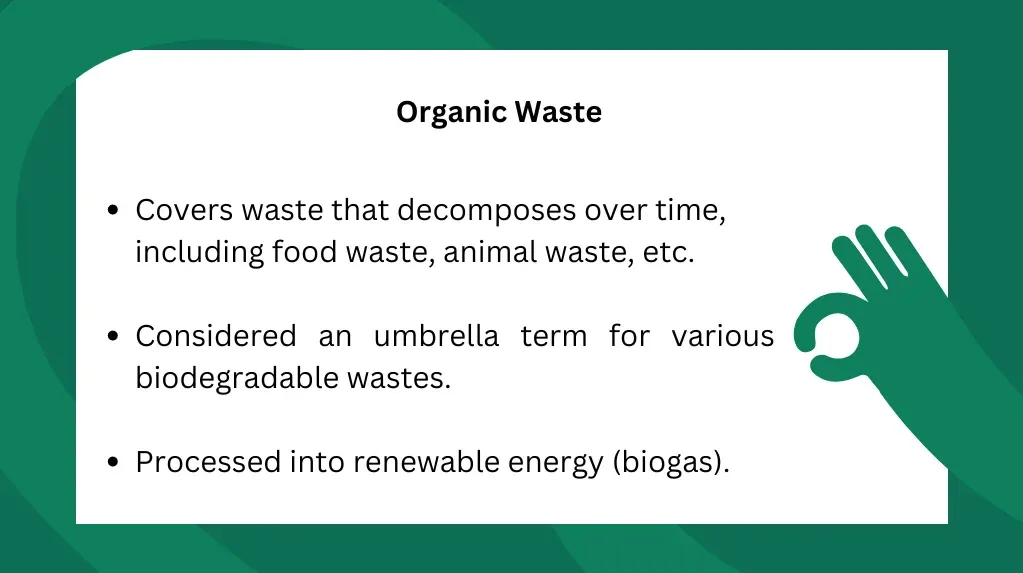
With green waste and organic waste often lumped into the same basket (and bin) without much thought, it may surprise you to know that these two types of waste material are not the same - and nor are they supposed to go in the same disposal bin!
It’s common for many to make the assumption that green waste is a type of organic waste. That being said, green waste is treated differently from most other types of organic waste in the waste processing industry.
This article will highlight the key differences between green waste and organic waste and provide you with a guide for how you should properly dispose of each types of waste.
What is Green Waste?
Green waste consists of waste material from plants such as those commonly found lettering the areas in gardens and parks. It is a type of organic waste but requires specific treatment during waste processing.
The reason for this specialised process is that green waste can be made into compost, which is how it can be recycled and used as a fertilising material that aids the growth of other plants and crops.

Examples of Green Waste
Most types of plant material can be considered green waste, including:
- Tree branches
- Weeds
- Grass trimmings
- Palm fronds
- Plant stumps
- Small branches and twigs
- Fruit and vegetable scraps
- Bark
- Woodchips
- Flowers
However, larger pieces of plant waste such as tree logs and animal waste matter are not considered green waste.
What is Organic Waste?
Organic waste covers any type of waste material that can decompose over time. By definition, organic waste includes green waste as a subset, but also other types of waste such as food waste and animal waste. For simplicity’s sake, green waste is usually treated as a different type of waste to organic waste in the waste removal industry.
It’s easier to think of organic waste as an umbrella term that covers these more specific types of waste. Depending on which specific waste it is, organic waste will have to be processed in different ways due to the risk of contamination that it can have on waste processing staff.
Examples of Organic Waste
There are many examples of organic waste, from those found in households to dining establishments, including:
- Coffee grounds and filters
- Leftover or spoiled food
- Meat, fish, or poultry
- Tea bags
- Bread and grains
- Shellfish shells
- Eggshells
- Biodegradable packaging materials or cutlery
- Dairy products
- Food-soiled paper or cardboard (napkins, pizza boxes)

What Are the Differences Between Green and Organic Waste?
The key difference between green and organic waste is in their composition — green waste is made of primarily plant-based material, while organic waste covers most other types of biodegradable waste from animals and plants.
Green waste is usually generated as a result of gardening and landscaping activities such as pruning or mowing the lawn. The unwanted plant material can be difficult to get rid of in bulk, and adds to the mess of a space. Organic waste, on the other hand, can come from various sources such as cooking in households or dining establishments or as a result of food processing industries.
There are also differences in processing methods for green and organic waste. Green waste is often processed through composting or mulching to produce nutrient-rich soil additives for gardening and landscaping purposes. Organic waste goes through a different processing method, where it is turned into a source of renewable energy (bio gas).
Can Green & Organic Waste Be Mixed?
Due to the unique differences in the way they are processed, green and organic waste cannot be mixed together and should ideally be separated before disposal. A good example of this is how there are separate red and green lid bins for households in Australia.
Green lid bins are reserved exclusively for green or garden waste, while red lid bins are used for general waste that includes organic waste. This ensures that the correct type of waste ends up at the right waste processing facility.

Getting Rid of Green & Organic Waste
So, what’s the right way to get rid of green waste and organic waste? Here are the main options for clearing out these two different types of waste.
Green waste disposal options
Mulching or home composting
If you only generate a smaller volume of green waste, an at-home solution could be a viable option for dealing with green waste. Mulching or home composting can be done by breaking up garden waste into small pieces and leaving them over the topsoil surface of your plants.
It’s a quick and easy way to reuse garden trimmings instead of tossing them into the green bin. Compost helps to retain the level of moisture in your garden and is especially useful for building up soil structure. That being said, it’s only a viable option if you have a garden at home or on site.
Professional green waste disposal service
For those without a garden to reuse green waste for, or spaces that produce a large amount of green waste, the build-up of garden waste can become a messy affair that gradually gets more difficult to deal with over time.
In such cases, getting the help of a professional green waste disposal service, like Ridly, to achieve a large-scale clean-up of the premises is the best option. Green waste disposal services will include a truck option for loading green waste in bulk, along with a team of removalists that will do the loading on your behalf. After a speedy collection, the green waste will be taken to the right processing facility where the material can be processed properly to be reused.
Organic waste disposal
The simplest way to deal with organic disposal is to place it in the general waste bin. However, there is a way to help make the processing much easier when it is eventually collected and sorted at a waste processing facility. Try to separate inorganic and organic waste into different household bins before placing them into the red bin.
At Ridly, we can collect both regular household waste (including organic waste) and green waste. Simply give our friendly team a call and tell us what you need collected — we can be there as soon as on the same day to clear your mess so you can enjoy a cleaner space!